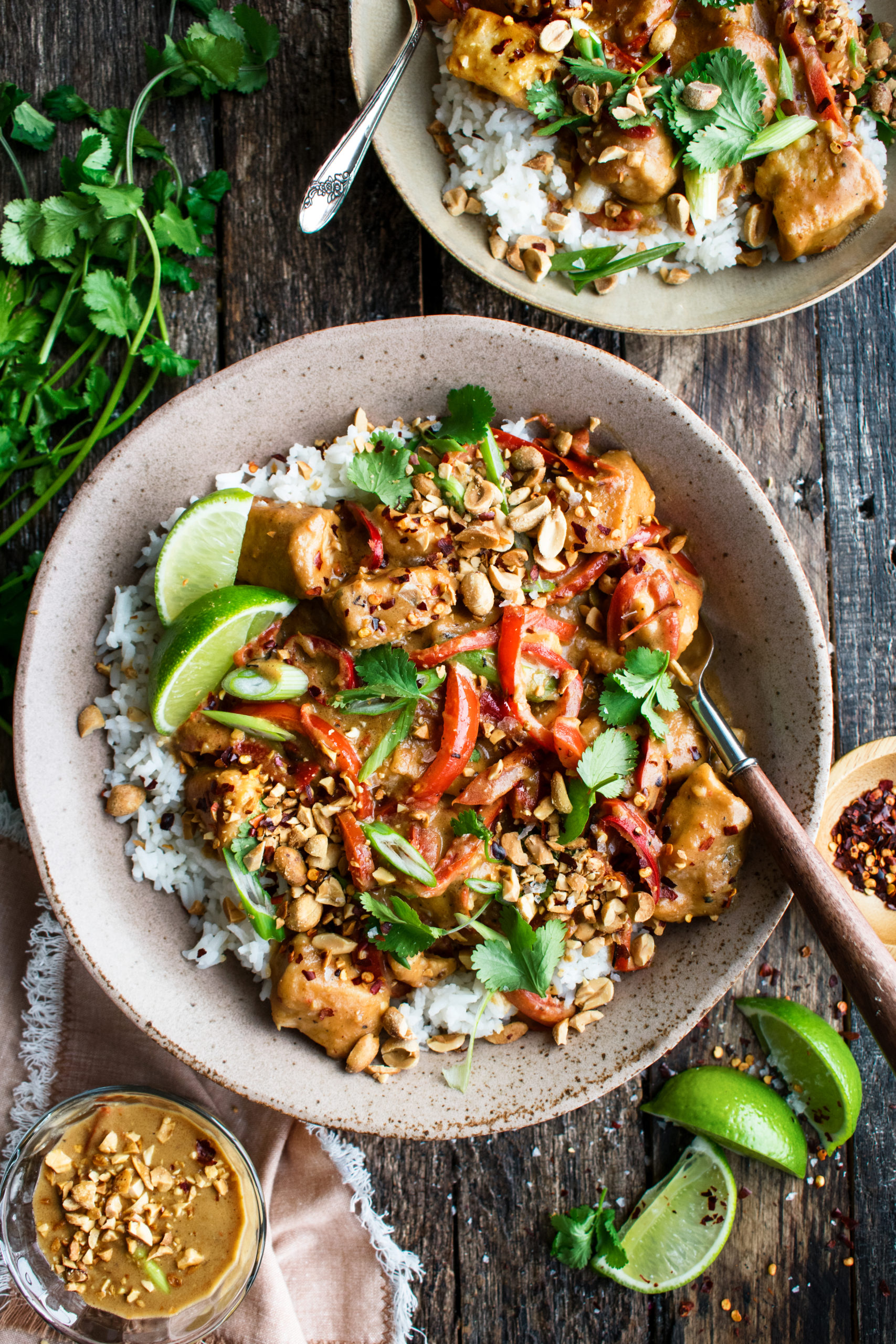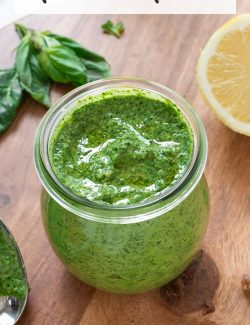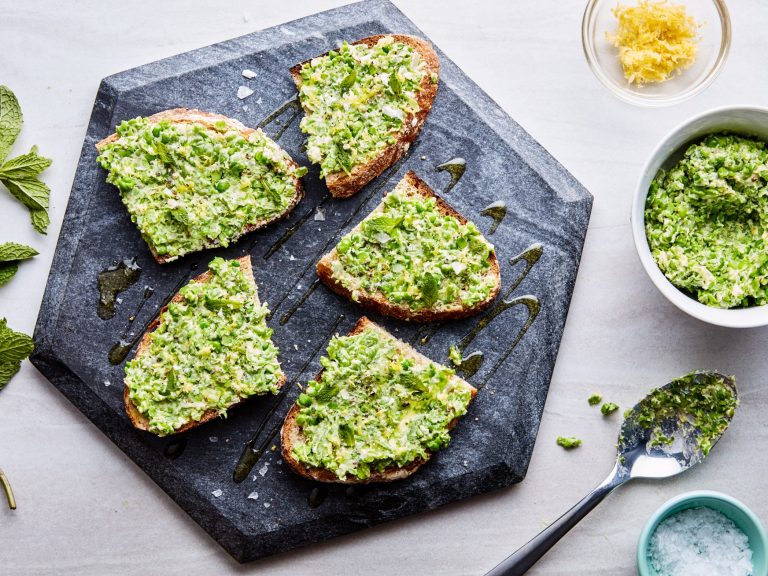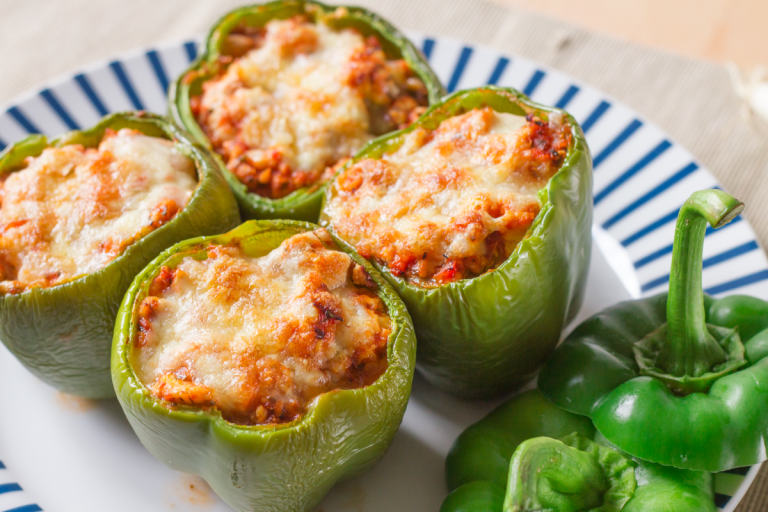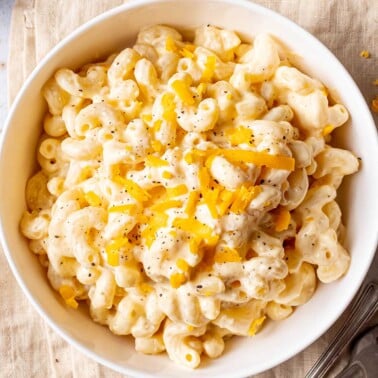Thai Peanut Chicken Recipe: Flavorful, Nutritious, and Easy to Make
Thai Peanut Chicken showcases the rich culinary heritage of Thailand. This dish embodies the perfect balance of flavors, which is a hallmark of Thai cuisine. Peanuts, a staple in Thai cooking, contribute both texture and flavor, making the dish uniquely satisfying. Serve it at family gatherings to incorporate traditional Thai elements into Western meals. It’s often found in street food markets, symbolizing its widespread acceptance and appeal across different social strata in Thailand.
Regional Variations
Thai Peanut Chicken varies across Thailand, reflecting regional tastes. In the northern Thai variant, the dish may include additional spices like turmeric and galangal, which add depth. Southern regions often introduce coconut milk, lending a creamier texture. Urban versions might lean towards a simpler, quicker recipe to cater to busy lifestyles. These variations ensure that no single version of Thai Peanut Chicken dominates, offering you an array of flavors to explore.
Key Ingredients in Thai Peanut Chicken
Peanut Sauce Preparation
Peanut sauce forms the core of Thai Peanut Chicken. Create a rich and savory sauce using creamy peanut butter, soy sauce, lime juice, and coconut milk. Add sugar and red chili flakes for balance and heat. The sauce should be smooth, so whisk ingredients until well combined. Adjust sweetness and spiciness to taste.
Choosing the Right Chicken
Chicken thighs are the best choice for Thai Peanut Chicken. Their higher fat content provides a tender, juicy result. Boneless, skinless thighs work best. If you prefer a leaner option, use chicken breasts but monitor cooking to avoid dryness. Marinate the chicken in a mix of soy sauce, lime juice, and spices for added flavor before cooking.
Cooking Techniques for Thai Peanut Chicken
Grilling vs. Stir-Frying
Grilling brings out a smoky flavor in Thai Peanut Chicken that enhances its overall taste. Use a medium-high heat, grilling chicken thighs for about 6-7 minutes per side. Grilled chicken provides a charred crust that contrasts well with the creamy peanut sauce.
Stir-frying, on the other hand, offers a quicker cooking method suited for a moist and tender chicken texture. Heat 1-2 tablespoons of oil in a wok over medium-high heat. Cook bite-sized chicken pieces for approximately 5-7 minutes, stirring constantly. Stir-frying maintains the chicken’s moisture and integrates better with vegetables like bell peppers and snap peas.
Marination Secrets
Marination infuses the chicken with deep flavors, making it a crucial step. Combine soy sauce, lime juice, garlic, and ginger to create a robust marinade. Let the chicken marinate for at least 30 minutes, but overnight marination delivers the best results. This allows the marinade to penetrate deeply, resulting in a tender and flavorful outcome.
Using coconut milk in the marinade adds richness, complementing the peanut sauce well. Add red chili flakes if you prefer a spicier kick. The acids from lime juice tenderize the chicken while the soy sauce adds umami, creating a well-balanced flavor profile.
Serving Suggestions
Accompanying Dishes
Complement Thai Peanut Chicken with a mix of traditional and contemporary sides. Jasmine rice provides a fragrant, subtle base that pairs well with the rich peanut sauce. Stir-fried vegetables, like broccoli, bell peppers, and snap peas, add a crunchy contrast and vibrant colors. Fresh spring rolls with a tangy dipping sauce offer a refreshing element. For a salad option, consider Thai cucumber salad with a tangy dressing made from lime juice, fish sauce, and sugar. This not only adds a crisp texture but also balances the flavors with acidity.
Presentation Tips
Serve Thai Peanut Chicken artistically to enhance its visual appeal. Use a large, shallow bowl or a plate to spread a bed of jasmine rice. Arrange the chicken pieces neatly on top, allowing the peanut sauce to drizzle over the rice. Garnish with fresh cilantro leaves and chopped peanuts for an added crunch. Lime wedges on the side provide a burst of citrus. Ensure the vegetables are placed attractively around the chicken. Serve the dish on patterned or solid-colored plates to highlight its vibrant hues, enhancing the overall dining experience.
Health Benefits of Thai Peanut Chicken
Nutritional Overview
Thai Peanut Chicken combines protein from chicken with the essential nutrients found in peanuts, creating a nutrient-dense dish. Peanuts provide healthy monounsaturated fats, vitamin E, and magnesium. Each serving of Thai Peanut Chicken typically contains around 25 grams of protein and various vitamins and minerals that support muscle growth and energy levels. Additionally, the inclusion of vegetables like bell peppers and broccoli can boost fiber intake, contributing to digestive health.
Dietary Considerations
Thai Peanut Chicken can accommodate various dietary preferences. For gluten-free diets, ensure soy sauce and other ingredients are certified gluten-free. For low-carb or keto diets, replace jasmine rice with cauliflower rice. Adjust the spice level by modifying the amount of red chili flakes to suit personal tolerance. If you’re allergic to peanuts, substitute with almond or cashew butter for a different but equally rich flavor profile.
Conclusion
Thai Peanut Chicken isn’t just a dish; it’s a flavorful journey through Thailand’s rich culinary landscape. From the creamy, nutty sauce to the perfectly marinated chicken, each bite offers a harmonious blend of textures and tastes. Whether you’re grilling or stir-frying, the cooking techniques ensure a delightful experience. Pair it with jasmine rice and fresh vegetables to elevate your meal. Plus, with its nutrient-rich ingredients, this dish fits well into various dietary preferences, making it a versatile addition to your recipe repertoire. Enjoy the vibrant flavors and health benefits of Thai Peanut Chicken in your next meal.
